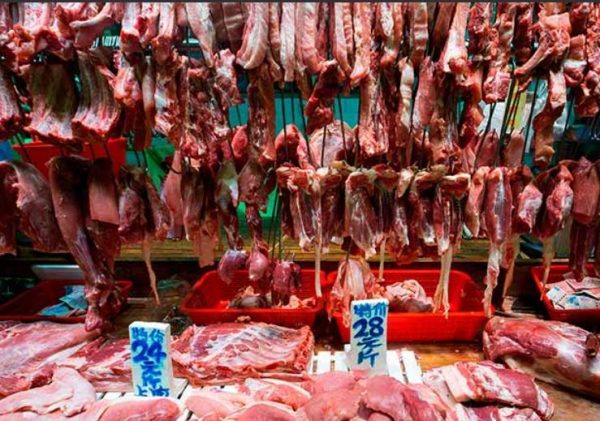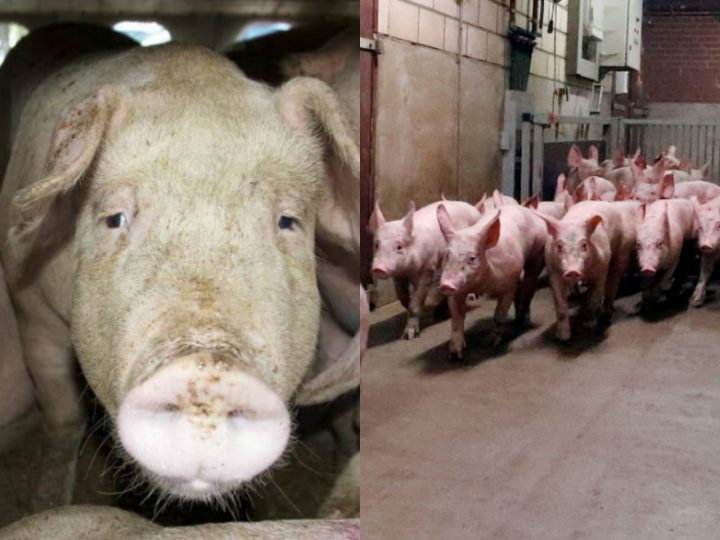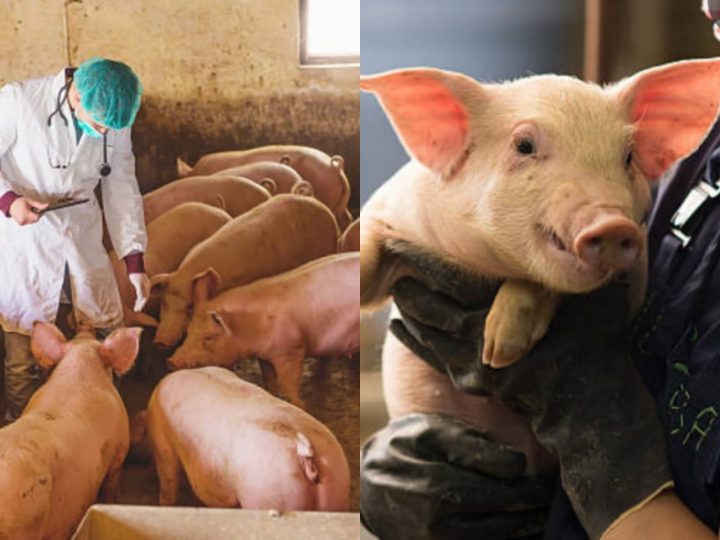WATCH: ASF In Local Farms Among The Reasons For Increased Pork Prices, Says Sabah Agro Minister
 Thirsty for JUICE content? Quench your cravings on our Instagram, TikTok and WhatsApp
Thirsty for JUICE content? Quench your cravings on our Instagram, TikTok and WhatsApp
The African Swine Fever (ASF) detected in local farms last month and soaring pork pellet rates have been faulted for a severe decline in pork production in Sabah, causing prices to skyrocket.
According to a statement issued by Sabah Agriculture and Fisheries Minister Datuk Seri Dr Jeffrey Kitingan in March this year, the ASF had explicitly cost the lives of 3,259 backyard pigs, 199 wildpigs, and 5,534 commercial pigs.
“These numbers do not include cases of ASF infections that were not reported.”
“As a result, I urge owners of backyard and commercial pigs to collaborate with the ministry by disclosing any deaths on their farms.”
“The ministry also instructs against marketing or transferring live pigs, regardless of whether the pigs originated in ASF-designated districts or not. All live pigs must be quarantined in their current location,” he stated.
Kitingan stated that culling processes must also follow the DVS’s standard operating procedures (SOP), and the department must be notified for monitoring and recording purposes.

To recompense for declining market accessibility to pork, the ministry has momentarily authorised the import of pork from Denmark and France.
“The ministry has endorsed licensing for a local importer to acquire 28,000 kg of pork belly from France, and we have also authorised licences for a local importer to import 241,635 kg of refrigerated pork and other processed pork items from Spain, Singapore, China, Denmark, and France,” he said.
Nevertheless, Kitingan asserted that ASF was not the sole issue causing a reduction in pork production in Sabah or the reason for elevated pork prices in regional supermarkets.
He stated that the global increase in animal feed prices has compelled other poultry producers, not just pork farmers, to cut supply.
Between August of last year and May of this year, the price of cattle feed increased by 10% to 40%.
Corn, for example, has accelerated by 40%, from RM1,500 per metric tonne in August last year to RM2,100 in May this year.
“Farmers have expressed dissatisfaction with the high production costs. Some have even chosen to cease operations entirely.”
“If global feed prices keep going up, I am worried about the long impact on local food security,” he said.

Kitingan also mentioned that his department is presently attempting to increase the number of accredited feedlots overseas and to enable more meat, including chicken, to be shipped into Sabah in hopes of avoiding a food crisis.
“The ministry is always searching for innovative ways to meet local requirements while also propping up our local growers,” he said.
ASF does not infect other cattle, although it can move to wild boars, according to JPVNS head Dr. Redzuan Ibrahim.
However, it can spread swiftly and destroy neighbouring pig farms. Flies that feed on ASF-infected pigs can also carry the virus.
“When sick pigs are slaughtered, the virus is disseminated through the meat and blood to neighbouring farms,” he explained in a statement made in early April.
A previous report had found that farm owners had taken about 2000 pigs infected with ASF (African Swine Flu) located near unlicensed farms to unknown locations.
Although it cannot be transmitted to humans, the disease has nevertheless proved to bring an ongoing sequence of unwanted events to the local society. Experts also say that citizens can expect the change to remain consistent for a while, or even face a further increase…

Much to the displeasure of netizens, of course.


 Get Audio+
Get Audio+ Hot FM
Hot FM Kool 101
Kool 101 Eight FM
Eight FM Fly FM
Fly FM Molek FM
Molek FM

